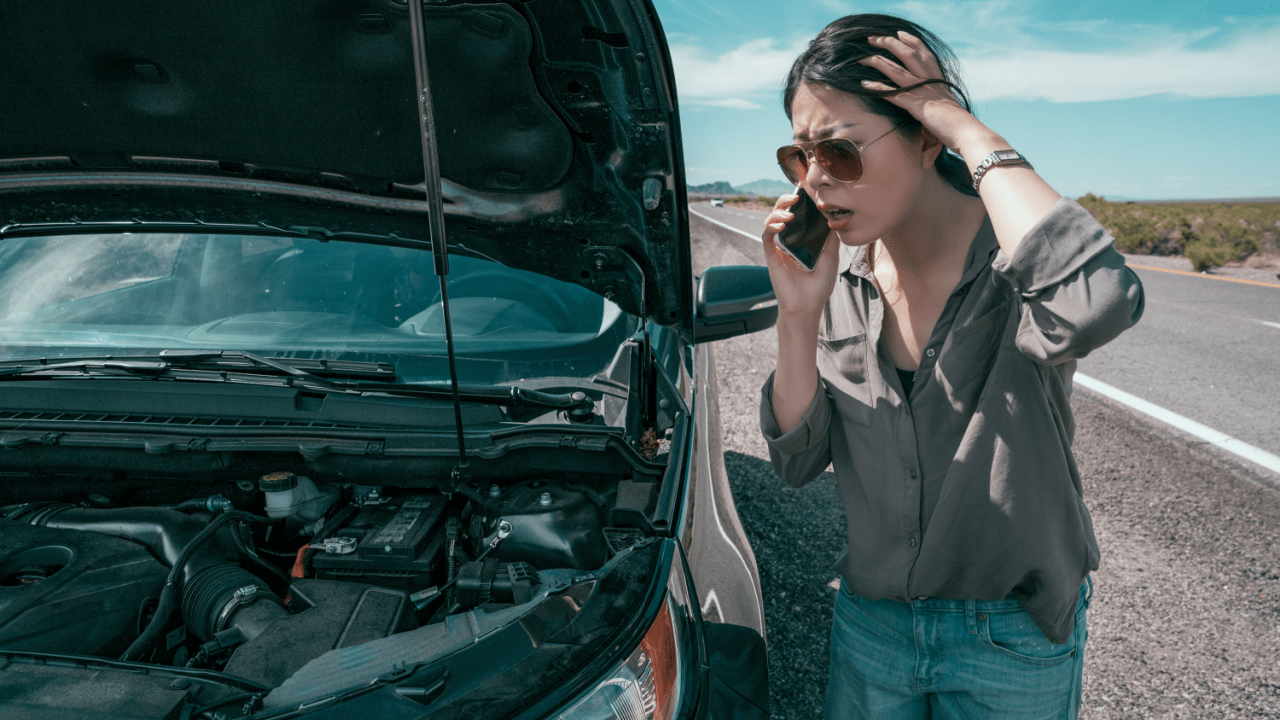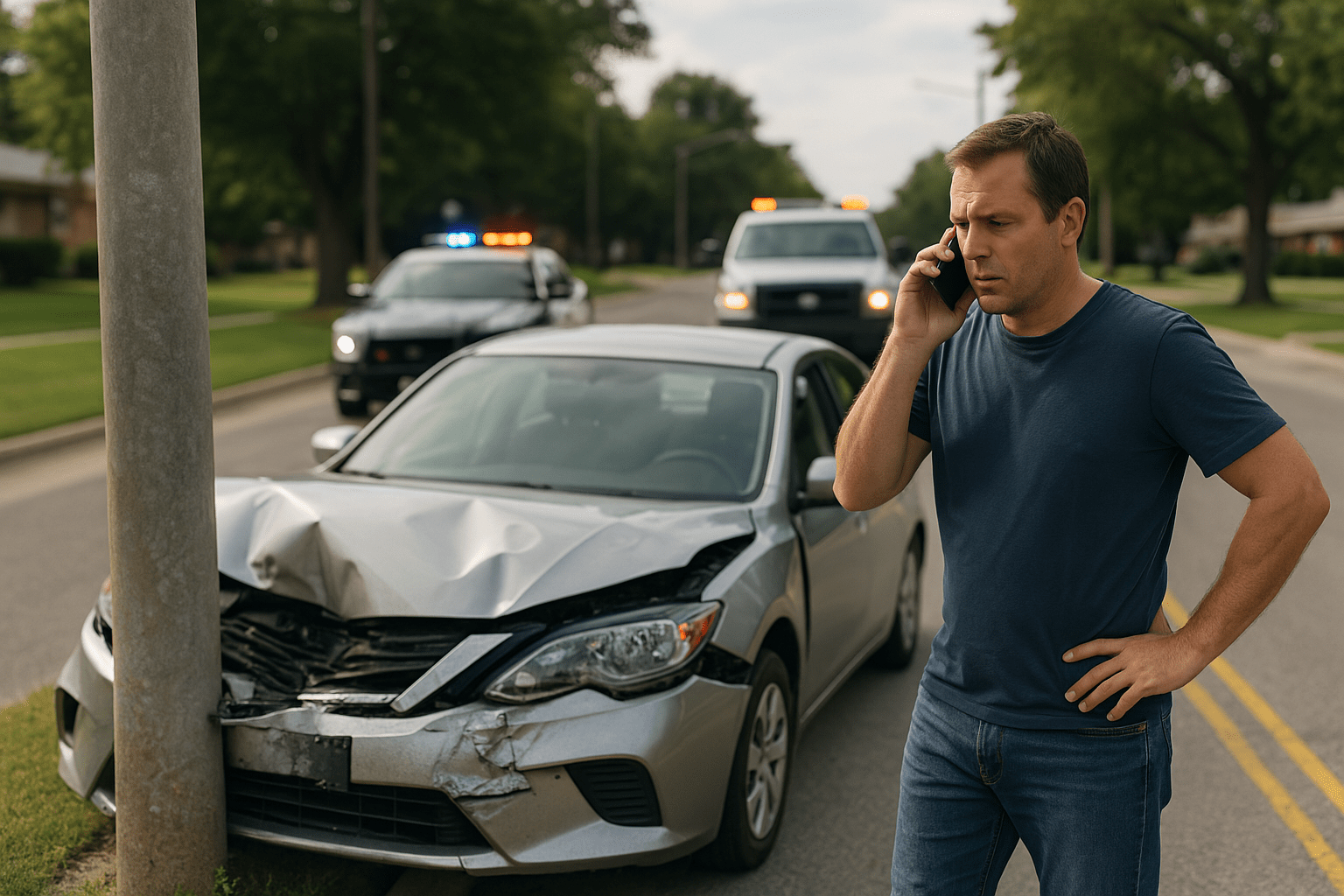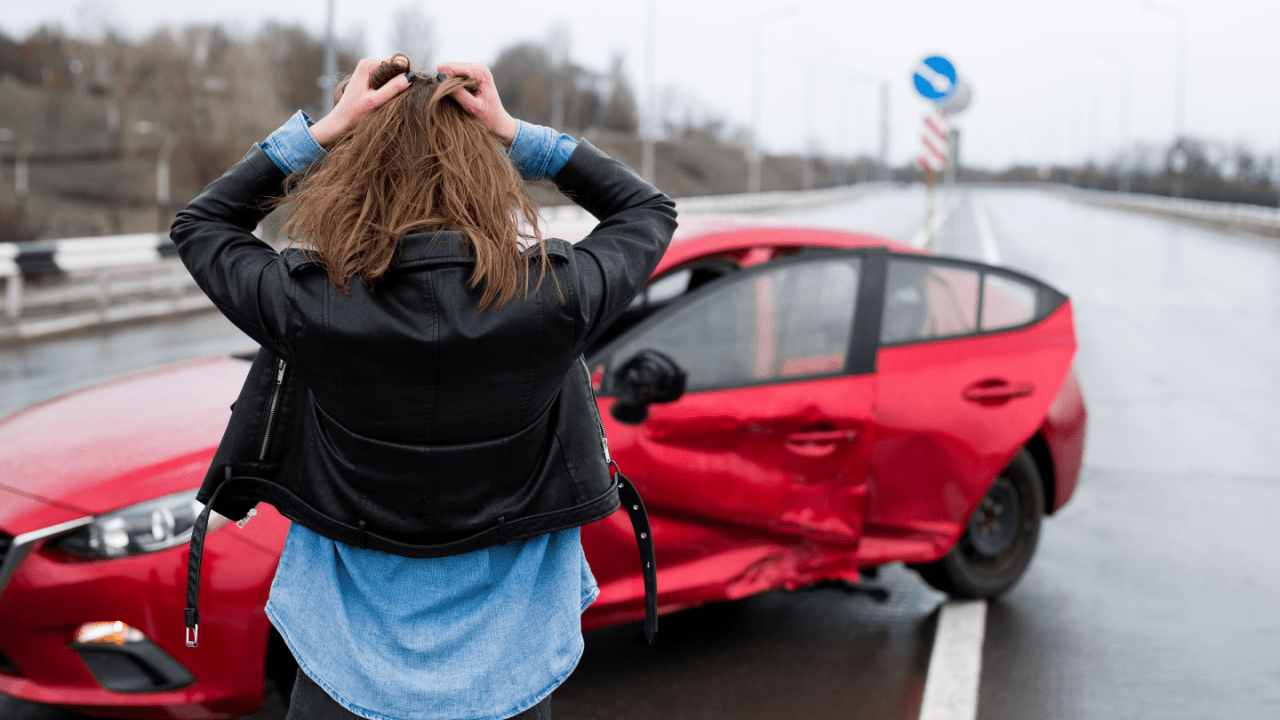- Mon - Fri: 8.30 AM - 5:00 PM
- 26565 Agoura Rd., 200, Calabasas, CA 91302
- 818-884-8075

What Happens When You Hit One of Your Own Cars? Insurance Explained
What Happens When You Hit One of Your Own Cars With Another?
What happens when you hit one of your own cars? It may sound like a rare scenario, but it happens more often than you’d think. You’re backing out of your driveway and accidentally hit another vehicle—only to realize it’s also registered to you. Now the questions start: Will insurance cover the damage? Do you file a claim? And are you considered at fault?
While a collision involving two of your own vehicles can feel confusing, the answers depend largely on your insurance coverage, how your policies are structured, and how your insurer defines liability in these unique situations.
Can You Really File an Insurance Claim?
The first question many drivers ask is whether they can file a claim when both vehicles involved in the accident belong to them.
Here’s the catch: Car insurance is built on the principle of liability—one party is responsible for damages to another party. But when you hit your own vehicle, you’re both parties. This creates a conflict for traditional liability coverage, which typically doesn’t apply when you damage your own property.
However, there’s a solution:
If you carry collision coverage on both vehicles, your insurer may allow you to file a claim for each vehicle individually—but only to cover your own losses, not for liability.
So, what happens when you hit one of your own cars? In many cases, you’re on your own for repairs unless both vehicles have the right coverage.
Does It Matter If Both Cars Are on the Same Policy?
Yes—it definitely matters. If both cars are insured under the same policy with the same provider, your insurer may treat the incident differently than if the vehicles are insured separately.
Scenarios to consider:
- Same policy, same provider: Collision coverage may apply separately to each vehicle, minus deductibles.
- Separate policies, same provider: You might have to file two individual claims—but liability still won’t apply.
- Different providers: If the vehicles are insured with different companies, coverage could become more complicated, and one insurer may deny the claim outright, citing that the insured is both parties.
Whether it’s commercial fleet vehicles or personal cars, structure matters.
How Insurance Companies View This Type of Claim
Most insurance companies view accidents where a person hits their own car as non-standard events, meaning they aren’t handled the same way as traditional at-fault collisions.
Here’s why:
- You can’t legally be liable to yourself.
- Liability coverage is designed to pay for other people’s damages, not your own.
- You’d be filing two claims—for both vehicles—against your own insurance.
So, what happens when you hit one of your own cars in your driveway? Insurers may allow collision claims to be processed, but you’ll likely need to pay deductibles for both vehicles, and your premiums may increase depending on your provider’s policy for multiple claims.
Your Options for Repair and Coverage
If you’re dealing with damage to both vehicles, here are your main options:
Use Collision Coverage
If both vehicles have collision coverage, you can file a claim for each one. Your insurer will subtract the deductible (usually $500–$1,000 per vehicle), and may cover the rest of the repair costs. Keep in mind that both claims will likely appear on your record.
Pay Out of Pocket
If you don’t have collision coverage—or want to avoid potential rate increases—you can pay for the repairs yourself. This is often the path chosen if damage is minor.
Garage Liability Insurance (for Business Use)
If you own a business, commercial auto insurance or garage liability may apply. These broader policies handle internal fleet incidents more flexibly.
Whatever you choose, document the incident thoroughly—take photos, write down what happened, and contact your insurance agent before filing.
Understanding Insurance Implications When You Hit Your Own Car
So, what happens when you hit one of your own cars? In short, you can’t use liability coverage to pay yourself—but if you carry collision insurance on both vehicles, you may be able to file separate claims. However, you’ll need to account for deductibles, potential premium increases, and your policy’s specific rules. Whether both cars are on the same policy or not, it’s important to speak with your insurer to clarify what’s covered and avoid surprises during the claims process.
Need Help Navigating Claims After Hitting Your Own Car?
If you’ve recently been in the unusual situation of hitting your own vehicle, Legal Brand Marketing can help. We connect drivers with trusted insurance professionals and accident attorneys who understand these unique claims. Whether you’re facing denied coverage, have questions about policy exclusions, or just want to explore your options—we’re here to help.
Contact us today to get connected with a professional who can help you understand your coverage and protect your financial interests.
Frequently Asked Questions (FAQs)
1. Will both of my vehicles be covered if only one has collision coverage?
No. If only one of the vehicles has collision coverage, only that vehicle may be eligible for repairs under your policy. The uninsured vehicle’s damage would likely need to be paid out of pocket.
2. Does hitting your own car affect your driving record?
Typically, no points are added to your license for hitting your own vehicle, but the claim may still show up on your insurance record and impact your premiums.
3. Should I file claims for both cars or just one?
If damage to one car is minimal, you might choose to file a claim for only the more seriously damaged vehicle to avoid a second deductible and potential rate increases. Always consult your agent before deciding.
4. Will filing two claims for one incident be considered insurance fraud?
Not if you’re transparent and both vehicles are damaged in the same incident. Insurers often require you to file two separate collision claims—but honesty and documentation are key.
5. Can I avoid rate increases by not filing a claim?
Yes, paying out of pocket—especially for minor damage—can help avoid a rate hike. However, this depends on your insurer and claims history.
Key Takeaways
- Liability coverage won’t apply when you hit your own car because you’re not legally liable to yourself.
- Collision coverage is essential if you want insurance to help with repairs on both vehicles.
- Separate deductibles will apply for each claim if both vehicles are damaged and insured.
- Your premium may increase, especially if the damage is significant or you file multiple claims.
- Policy structure matters—how your cars are insured (same policy, provider, or not) can affect how claims are handled.



